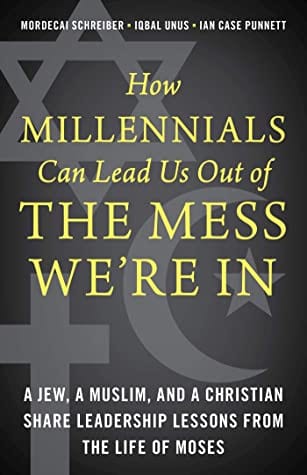You Evangelicals and post-evangelicals out there will be well-familiar with the “Billy Graham Rule.”
For those who aren’t, Graham determined at some point early on in his ministry career to never be alone with a woman who was not his wife (or another family member, I presume). The idea was that this rule would not only protect him from temptation, but protect him from the appearance of something suspect.
For a man of Graham’s public stature, and in the conservative context (and times) in which he ministered, one can understand the rationale, I suppose.
Interestingly, Samuel James, an Evangelical Patheos blogger, has argued for a comeback of the Billy Graham rule. The immediate context of James’ suggestion is the by-now well-publicized resignation of mega-church pastor Tullian Tchividjian (who also happens to be Graham’s grandson), due to his (and his wife’s) marital infidelity. James suggests that if more pastors would heed the rule, there might be fewer indiscretions and resignations.
He acknowledges that many people critique the rule for the ways it discriminates against women. But let’s consider that issue further for a moment. When men, particularly men in positions of authority or power, determine to not be in one-on-one situations with a woman, how does that impact those women? What messages does that send? What opportunities does that rule out for those women? What does that communicate about those women? That they are potential threats to the men, such that the men must establish buffers against them? Does it communicate that female sexuality is so powerful and unwieldy that a man and a woman cannot work together as colleagues in a mutual respectful, non-sexualized manner? Or, does it communicate that male sexuality is so powerful and unwieldy, that the temptation to not pounce on a woman is too great? Or, does it communicate that everything is about sex–even (even in the church–and that this should therefore determine how we relate to one another? Or, that public perception is so important, that we must sacrifice egalitarian respect to maintain the purity of that public perception?
This is why James’ suggestion made me think of the controversial (to say the least) Tim Hunt proposal. Hunt is a renowned British scientist who, in a recent speech to the World Conference of Science Journalists in South Korea, said this:
“Three things happen when they are in the lab: you fall in love with them, they fall in love with you, and when you criticize them they cry….Perhaps we should make separate labs for boys and girls?”
As a result of the outcry (much of which consisted of pretty hilarious tweeting) Hunt was forced to resign from his prestigious position at University College London. I should note that Hunt has insisted that he was only joking, and Richard Dawkins and others have come to his defense (see this article).
But as I understand it, sexism has long been a problem in the sciences, so joke or no joke, it was not well received.
Science and Tim Hunt aside, sexism has very much been a problem in American Christianity, in particular the conservative evangelical variety that has very often embraced the “Billy Graham Rule.” I recall one prominent Christian leader saying that he has so firmly subscribed to the rule that he wouldn’t give a stranded female motorist a ride in his car if it meant he had to be alone with her (to his credit, he did say he would call for help as he waited in his car!). Now, there are good reasons to be cautious about rides to strangers, but I don’t know that being a woman is one of them.
I have to wonder if a “rule” really accomplishes what it intends. As an egalitarian myself, I cannot imagine that the rule, on a general level anyway, helps more than it harms. Fidelity, trustworthiness, and respectfulness are matters of the heart–not of rules. That seems like something Jesus would say; the same Jesus, by the way, who was criticized for his scandalous interactions with women.
I have no interest in exploring the details of Tchividjian’s situation (and to James’ credit, he didn’t either). So who knows what might have been helpful–or not helpful–there. But were we to run the numbers, would we discover that infidelity and sexual indiscretions of various sorts (let’s go ahead and add sexual abuse, pedophilia, and so on) is rarer among those who have consciously adopted Graham’s rule?
I doubt it.
With all due respect to Billy Graham, I suggest pastors pass on the temptation to further their repression and to react to situations like this by putting up fences. Wisdom, yes. Caution, yes. Mutual respect, definitely. This way is less rigidly defined by parameters, perhaps, but it might be a healthier way to exist with one another.
Stay in the Loop! Like/follow Unsystematic Theology on Facebook!












